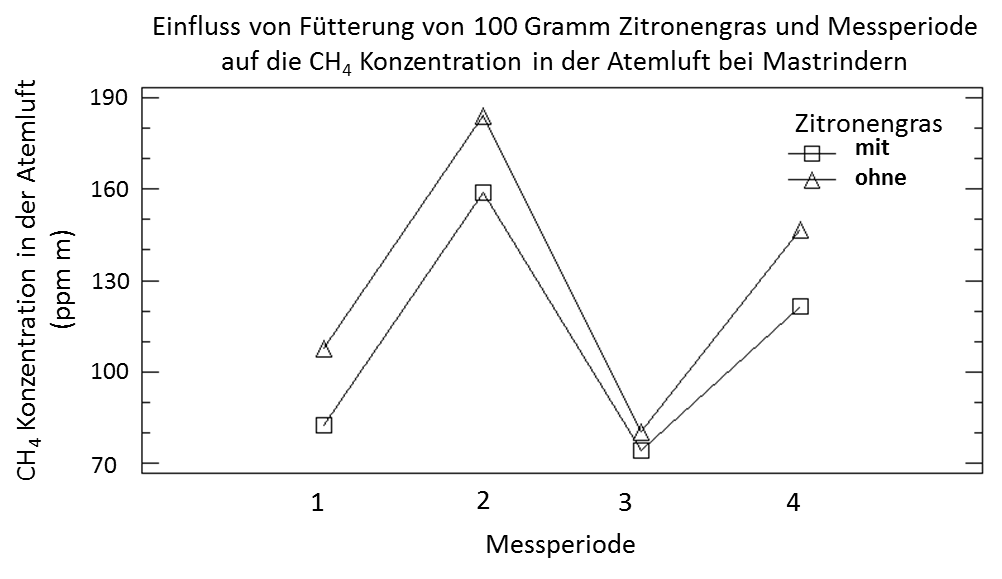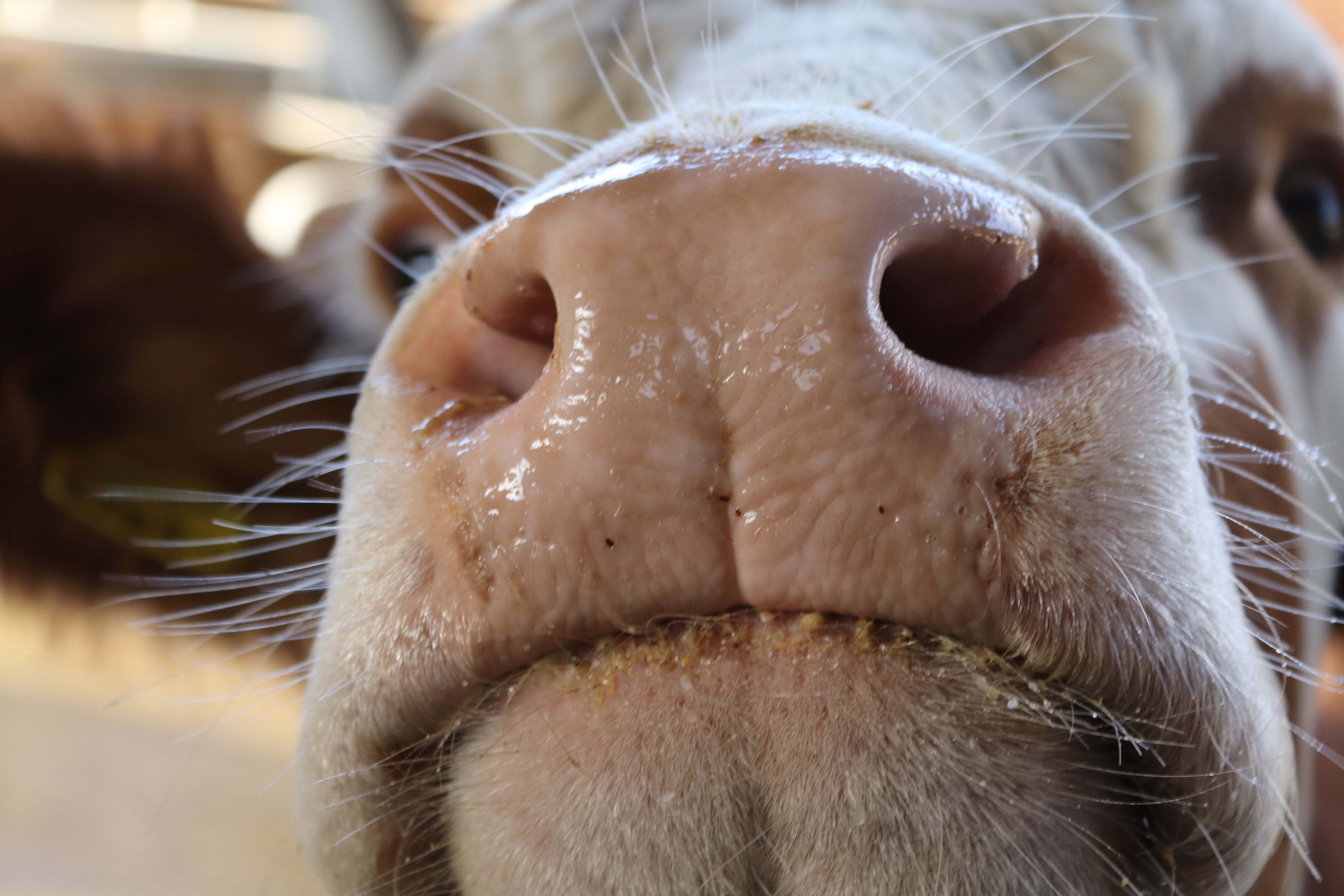Based on a study by the Free University of Mexico, the effect of adding lemongrass to feed on the methane concentration in the breathing air of fattening animals was examined under Austrian conditions - it was found that the 47 cattle included in the field trial had an average of around 15 percent less methane expelled during digestion.
The field test
- As part of the field trial, 47 fattening bulls weighing between 300 and 600 kg were available in 8 boxes with 6 male animals each at the Christian Schrammel family in Schwarzau am Steinfeld.
- The animals were divided into two groups, with one group also being fed 100 grams of lemongrass per day (ration proportion depending on age: 1.2 to 1.7 percent).
- Between September and December 2020 (four measurement periods of three weeks each), each box was fed twice with and twice without lemongrass.
- At the end of each measurement period, the concentration of methane (CH4) in the breath of the cattle was measured using a mobile measuring device (Methan Laser Mini).
- Possible effects on feeding were measured using measuring boluses from smaXtec.
Results
- Feeding 100 grams of lemongrass per day reduces CH4 emissions in the air we breathe by an average of 14.6%.
- The fluctuation range of the methane reduction in the repetitions is between 7.8 and 23.4%.
- This amount is unlikely to have a negative impact on the processes in the rumen. All results of the measurement boluses are typical and do not differ statistically.


Agriculture Minister Elisabeth Köstinger
“Agriculture and forestry are not the problem when it comes to climate change, but rather part of the solution. I am very proud that such pioneering projects are being carried out at our research locations. Austrian small-scale agriculture is continuously reducing greenhouse gas emissions. Since 1990, domestic agriculture has emitted 14.3 percent fewer greenhouse gases. But we will continue to research future solutions. This project shows that alternative feeding can reduce methane emissions by 15 percent. Lemongrass will not be able to solve all problems, but the results provide important insights for the future of livestock research. We will now build on these results with the HBLFA Raumberg-Gumpenstein,” explains Agriculture Minister Elisabeth Köstinger.
Managing Director of Marcher Fleischwerke Norbert Marcher
“Major social goals are best achieved when everyone honestly thinks about what they can change in their immediate area of influence. When we were informed by our customer Burger King about the impressive study results in Mexico, we were immediately excited about the idea of checking whether similar results could be achieved under our domestic farming conditions. Fortunately, the HBLFA has Raumberg-Gumpenstein with Dr. Thomas Guggenberger and his team are experts who have the necessary infrastructure as well as the outstanding scientific competence, experience and enthusiasm in relevant research.”
Head of the Livestock Research Institute at the HBLFA Raumberg-Gumpenstein Dr. Thomas Guggenberger
"The initiative by Marcher Fleischwerke to use lemongrass to dampen methane emissions from enteric fermentation in domestic cattle is very informative - an exciting approach to how companies in the food sector can make a contribution to climate protection through innovative production approaches."
Downloads

team

Dr. Thomas Guggenberger, MSc
Head of the Institute for Livestock Research
Dr. George Terler
Milk production and animal nutrition





